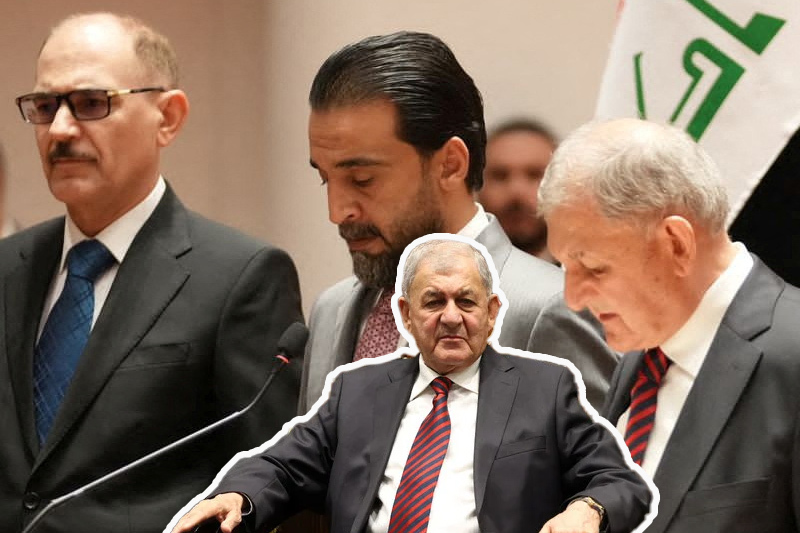
End of stalemate in Iraq with election of new President and Premier
On Thursday, Iraq’s parliament elected Kurdish politician Abdul Latif Rashid as president, who immediately appointed Mohammed Shia Al Sudani as prime minister designate, thereby ending a year long political deadlock in Iraq after a presidential election last year in October.
Mr. Al Sudani, who is nominated for the post of prime minister designate by the Iran backed Co-ordination Framework, now has 30 days to submit his Cabinet order to Iraq’s Parliament for final approval. In his first statement, Mr. Al Sudani expressed his gratitude to those who supported him and assured to submit his cabinet line up “as soon as possible”. Sudani, 52, also promised to form a “strong government” that was able to “build the country, to serve the citizens, to preserve security and stability and build balanced international relations”.
“Thursday’s vote, which was the fourth attempt to elect a president this year, took place shortly after nine rockets landed on Thursday around the Iraqi capital’s Green Zone,” according to a military statement. The attack had killed at least 10 people, including security forces members.
Keep Reading
Caretaker prime minister of Iraq, Mustafa Al Kadhimi congratulated Mr. Al Sudani on being appointed as Prime Minister designate and asked to form the new Iraqi government. “We call on all political forces to co-operate and integrate, wishing him success in the task of forming the government in order to achieve the aspirations of our honourable people,” Mr. Al Kadhimi tweeted.
The last year elections had seen populist Shiite Muslim cleric Moqtada Al-Sadr as the biggest winner but had failed to gather support to form a government. Sadr had then withdrawn his 73 lawmakers and said of quitting politics, leading to the worst violence in Baghdad in years as his loyalists stormed a government palace and fought rival Shiite groups.
“Now Iran-backed groups are dominating the parliament, they have a friendly judiciary and have dominated the executive (authority)…they will need to benefit from it, one way to benefit from it is to do it gradually or suddenly and try marginalize or expel pro-Sadrists from the state apparatuses,” said Hamdi Malik, specialist on Iraq’s Shiite militias at the Washington Institute.




